Health Essentials
Dancing with the rain
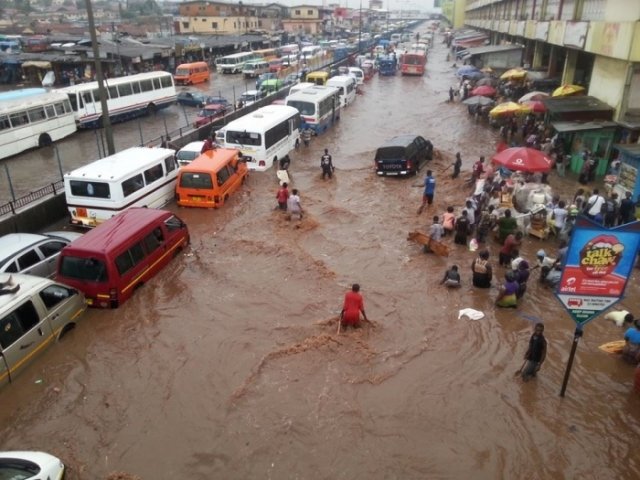
“Once AGAIN, torrential rains have hit the Accra Metropolis, creating heavy floods in various parts that have caused great havoc to lives and property. The team of ministers, the Mayor of Accra, officials of the National Disaster Management Organisation (NADMO) and the security agencies are going round to ascertain the impact” –GNA, 2009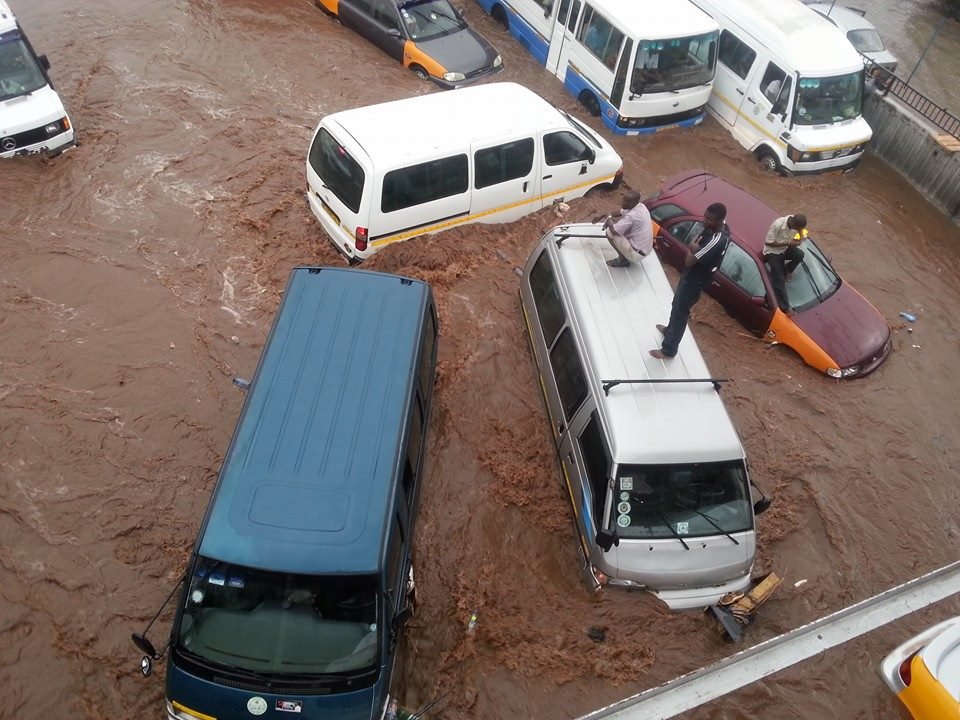
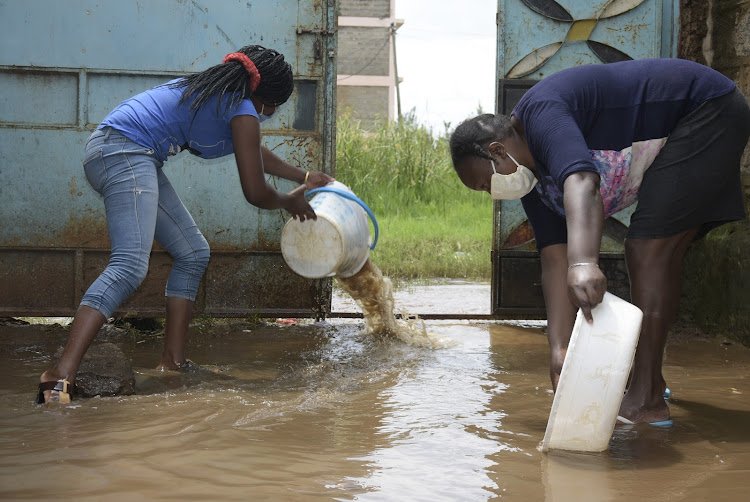
I have highlighted “ONCE AGAIN” for obvious reasons. The scenario above is almost a ritual. As soon as the sun shines consistently, and the land dries up, you can be sure that we will lay down our pens, take off our boots, jump into our budget crippling SUVs, return to discussing “more pressing issues” and pretend it was all just a dream. How many more warnings do we need as a nation before we sit up? Maybe 70 X 7! If God was human he definitely would have been fed up with us by now and that will mean we would have been left to our fate. We are all to blame. NO EXCEPTIONS!
Even die-hard optimists are beginning to show signs of fatigue. I haven’t written about floods in Accra in a while now and I was inspired to reproduce this after reading Emmanuel J. K. Arthur’s Accra is “celebrating” its Annual Flooding Festival and I quote him “traditionally the Festival is celebrated by Accra residents who live in low-lying areas, also known as Flood Prone Areas. It is “celebrated” from March and climaxed in June every year since 1960s. During the period, the sitting Works and Housing Minister and the Regional Minister are joined by District and Municipal Assembly Heads to tour “celebrating areas” to reiterate the commitment of Government to end the perennial flooding…………This year’s “celebration” is on the theme Blaming all for our collective actions.” What else can I add to this masterpiece? We seem to enjoy this and have no plan to “dig” ourselves out of this hole. Maybe we should get rid of a number of our army of ministers and appoint a Flood Prevention Minister.
I hate to have to do this again but once started at least let us remind ourselves of some of the challenges floods cause to our fragile economy.
CAUSES OF FLOODS
- Urbanisation
- Migration of people from the rural areas to the large cities such as Accra and Kumasi has led to an explosion in their population. We have outstripped the already poorly planned facilities available
- The urban poor in the capital of Accra are especially (but everyone feels the pinch) vulnerable to the effects of flooding due to poorly and often illegally built structures, (many across the paths of water bodies) overcrowded living conditions, and inadequate sewage and drainage systems that are often clogged with refuse. Scarcity of land has also forced many people to occupy low lying areas and are prone to floods
- Decreased Capacity of Drainage Channels
- our drains are choked with refuse or are silted up as are our rivers and streams
- Incapacity of Drains and Culverts
- Drains are absent in many places, unfortunately in privileged areas where we may find some semblance of drains, their capacity is woefully inadequate. In some areas open gutters compete for honours as to which of them is able to reclaim the sand/silt skillfully dug out and lined on their edges. Really do we expect nature to find a way of leaving them along the edges of the drains till the rapture? How ridiculously NEGLIGENT can we be as a people. Is someone being paid to take care of these? They had better come out clearly to say they are and have been on STRIKE since they were appointed instead of claiming to be at work and doing absolutely nothing.
- Impact of Climate Change
- Extreme changes in weather are here to stay, so we had better find practical solutions to keep us safe. The rains are erratic, the sea levels are rising above many inhabited land and it’s only a matter of time.
- Human Attitude
- Probably the most important. All the factors listed above are directly linked to our activities. Drains serve as our garbage disposal areas, edges of gutters are ideal for leaving heaps of sand and deforestation and exhaust fumes are adversely impacting our climate. We sow INDISCIPLINE and one of the many things we reap is flooding.
EFFECT OF FLOODING
- Economic Loss
- Destruction of property can be extreme and in many situations it can bring economic activity to its knees. People are busy taking care of their homes, factories are shut because of the havoc caused by the water and several hours to days, weeks, months and even years of economic activity are lost
- Resources that could have been used to develop the country will now be used for reconstruction – what an absolute waste!
- Environmental
- Our already ridiculous traffic situation will graduate to another level totally unheard of. This is caused by damaged roads (if the roads even exist), destroyed bridges and workmen trying hard to intervene.
- Damaged farmlands will bring about economic hardships for our farmers as stored food and farm produce may be destroyed. Certainly these losses will eventually hit the pockets of even those who live many miles away. Can you imagine the strain on our already over-burdened pockets?
- Humans
- Once again, I will separate the number one culprit. Lives are lost (including through drowning) as well as homes, businesses, vehicles and many more
- Diseases
- Floods will always leave a myriad of diseases in its trail, both immediate and long term. Infectious diseases will have a field day and these include; common cold, food poisoning (especially when there is no electric power), cholera, typhoid and hepatitis A. Remember when everything settles, malaria will rear its ugly head.
- The physical and mental impact on our health is often ignored but anyone who has been a victim of the effects of a flood will tell you that they experience; shock, anxiety, fear, sadness, anger and physical symptoms such as headaches and general body pains. It sounds to me as Post Traumatic Stress Disorder, what about you? Your guess is as good as mine; the effects are most devastating in children.
LOOK OUT FOR THESE AFTER A FLOOD
After a flood, it’s time to clean up and put the pieces back together. Life will go on and those paid to address such situations will go back to sleep.
For those of us who have to do the “dirty” work, take note of the following:
- Electrocution – put off power sources.
- Broken bottles, nails and other sharp objects that may injure you.
- Avoid contact with insects and animals (there may be many stray animals with diseases such as rabies)
- Wash your hands thoroughly with soap and water as often as needed and wear protective gloves and other clothing, if possible
- Get rid of all the mud and use disinfectants
STEPS TO AVOID FUTURE FLOODS
I won’t even venture into this terrain again. Let us all FIX our ATTITUDES. That is all it takes; DO THE RIGHT THING wherever you find yourself and maybe just maybe we will be able to look back one day and say Accra would have been flooded by now.
I hope that in my lifetime, I will not have to write again “so long a letter” because we will be on top of our flood avoidance and preparedness programme.
AS ALWAYS LAUGH OFTEN, ENSURE HYGIENE, WALK AND PRAY EVERYDAY AND REMEMBER IT’S A PRICELESS GIFT TO KNOW YOUR NUMBERS (blood sugar, blood pressure, blood cholesterol, BMI)
Dr. Kojo Cobba Essel
Health Essentials Ltd/ Mobissel
(www.healthessentialsgh.com)
*Dr. Essel is a medical doctor, holds an MBA and is ISSA certified in exercise therapy, fitness nutrition and corrective exercise.
Thought for the week – “It does not need one with a high IQ to “guess” that building in the wrong places, building without drains, throwing rubbish in gutters, not having a plan to desilt water bodies or clean out drains will eventually lead to flooding’
References:
- The Holy Bible – Mathew 18:21
2“Impact of floods in Ghana and the way out” – Bentil Asafo-Duho
3. Journal of Water and Health -2009
4. WHO – Flooding and Communicable Diseases
5. Centers for Disease Control and Prevention (USA)
6. Accra is ‘celebrating’ its Annual Flooding Festival – Emmanuel J.K. Arthur
By Dr. Kojo Cobba Essel
Health Essentials
Stop the silent killer: Breaking myths to prevent sudden deaths from high blood pressure
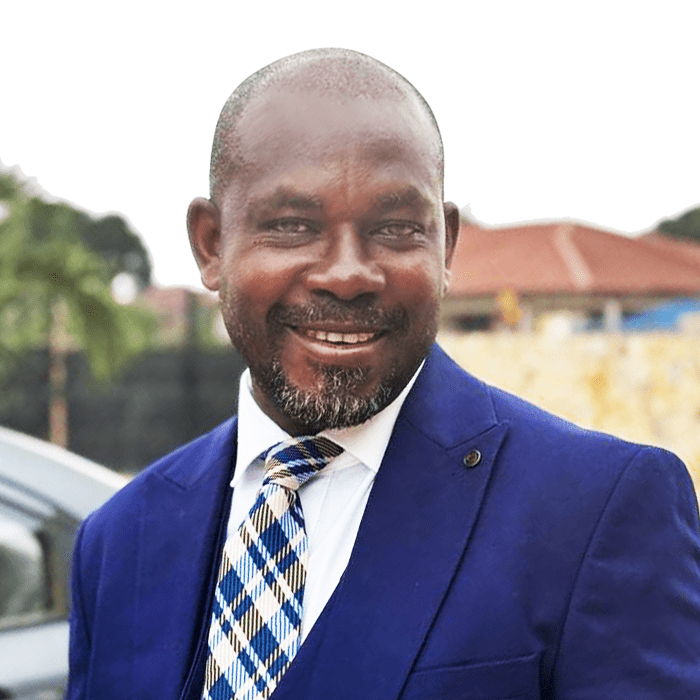
Every week in Ghana, a life is cut short, sometimes in the middle of traffic, sometimes at a desk, sometimes in the quiet of sleep. A father doesn’t come home. A sister doesn’t wake up.
A colleague slumps at work and never gets back up. Families are left asking why and you will hear statements like what happened? Was he sick? I just saw him, he has not shown signs of ailment, what a shock and so on.
Behind many of these sudden tragedies is a quiet, invisible force: high blood pressure, or hypertension. It doesn’t scream for attention. It doesn’t always show symptoms. But it tightens its grip silently on hearts, on brains, on lives.
This is not just a medical issue. It is a human one, it is about behaviour, it is about ignorance and it is about lifestyle. It is the grandmother who never got her blood pressure checked because she felt “fine.”
It is the taxi driver, the statistician, the nurse who ignored his pounding headaches, thinking it was just stress. It is the young lady who was so vibrant at church and no one suspected she could fall and die. Because it shows no symptoms.
The alarming numbers we cannot ignore
The Ghana’s 2023 STEPS Survey on Non-Communicable Diseases conducted by The World Health Organisation, Ghana Health Service and Ghana Statistical Service has revealed findings that should push for action.
According to the report, 21.7 per cent of adults aged 18 to 69 in Ghana are living with high blood pressure. Even more alarming is that 51.1 per cent of those with hypertension are not aware of their condition.
This means that more than half of the people with dangerously high blood pressure are walking around without knowing it until tragedy strikes. That is the real danger of this silent killer.
Literature has shown that hypertension is preventable and manageable. But only if we treat it like the threat, it is. That means regular checkups; that means understanding the risks and that means talking about it openly, urgently, and with compassion.
The deadly power of myths
Why are so many Ghanaians untested or untreated? Is it out of ignorance, or the pervasive myths about hypertension and its treatment?
• Some believe blood pressure medicine “weakens the body” or “shortens life.”
• Some believe blood pressure medicine “weakens the penis and kills sexual drive”
• Others think once you start taking medication, you are “dependent for life.”
• Many say, “I feel fine, so I must be fine.”
These beliefs are not only false, but they are also deadly. The truth, according to the World Health Organisation, is that effective treatment can reduce the risk of stroke by up to 40 per cent and heart attack by 25 per cent. Avoiding treatment does not prevent dependence rather, it accelerates death.
As Dr Patrick Kuma-Aboagye, former Director-General of the Ghana Health Service, has noted, “Hypertension is preventable and treatable, but our biggest battle is misinformation and late detection.”
A national conversation we must have
This is not just a health issue it is a national emergency. Sudden deaths rob families of breadwinners, communities of leaders, and the country of its productivity. In every obituary notice caused by hypertension, there is a story of loss that could have been prevented with a simple blood pressure check and treatment.
Behind every life saved is a moment of awareness, a decision to act, therefore, the media must rise to the challenge.
Radio and television programmes should dedicate regular airtime to demystify hypertension. Newspapers should carry survivor stories, expert interviews, and practical lifestyle advice.
Social media influencers should spread awareness in local languages, reaching young people who assume they are safe.
Public health experts also have a responsibility. Screening must move beyond hospitals into churches, mosques, markets, schools, and workplaces. People should not have to wait for illness to know their BP status.
What we can do together
To stop the silent killer, we need a collective response:
• Check your blood pressure regularly, even if you feel healthy.
• Follow medical advice faithfully if diagnosed because treatment saves lives.
• For healthy lifestyle, eat less salt, reduce alcohol, reduce starchy, fat and oil intake, avoid smoking, and exercise at least 30 minutes daily.
• Encourage one another talk about blood pressure in families, communities, and workplaces.
Conclusion: Silence is killing us
What kills is not just the disease, but the silence, fear, and myths that surround it. The STEPS 2023 report has sounded the alarm: nearly one in five Ghanaian adults has high blood pressure, and more than half don’t even know it.
This is the time for bold conversation, public education, and decisive action. The media, health professionals, policymakers, and ordinary citizens must join forces to expose the myths, spread the facts, and save lives. Let us not wait for another headline.
Let us make blood pressure a national conversation before it becomes a personal tragedy. With awareness, treatment, and collective will, Ghana can stop the silence and stop the sudden deaths from the silent killer.
Written by: Ansah Moses Teye-Akam – Senior Statistician, Sociologist/Scientific Research Organisational Expert.
Email: moses.ansah@ statsghana.gov.gh/ansahmosesteyeakam@ gmail.com.gh Contact: 0244539034 / 0204359034
Join our WhatsApp Channel now!
https://whatsapp.com/channel/0029VbBElzjInlqHhl1aTU27
Health Essentials
Your heart is precious ‘don’t miss a beat’
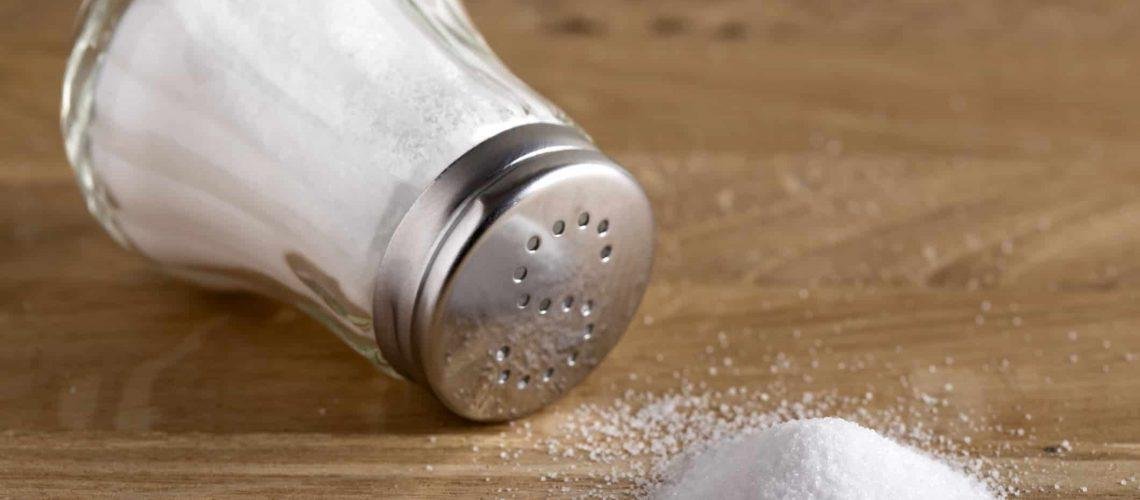
On September 29 of each year since 2000, we mark World Heart Day without fail but it appears we find a comfortable place to doze off after that, leaving the world’s number one killer to continue its havoc.
This year, the theme “Don’t Miss a Beat” focuses on “the importance of heart and blood vessel (cardiovascular) health by emphasizing how losing someone to heart disease also means losing irreplaceable moments in life. It encourages individuals to prioritise heart health, not to miss important life events, and supports building a world with fewer deaths and more healthy hearts.”
Together with its members, the World Heart Federation spreads the news that at least 80 per cent of premature deaths from heart disease and stroke could be avoided if the main risk factors, tobacco, unhealthy diet and physical inactivity, are controlled.
Stop smoking and prevent others from smoking
a. Once upon a time, puffing the smoke of death was fashionable (maybe from a lack of adequate knowledge?) but certainly in 2025, a healthy lifestyle is in vogue. If you do not smoke, why should you inhale smoke from others (passive smoking)?
Eat more fresh fruits and vegetables
a. In Ghana and other developing countries, we often want something that will fill our stomach and stay there for as long as possible. Why do you think “concrete” is so revered in this great land of ours? Start the day with a hefty dose and top it up with frequent gulps of water. We always come up with 1001 reasons why eating fruits could lead to instant “pocketitis” and may signal the beginning of a third world war in many homes. We love to get into unnecessary arguments about whether fruits should be eaten before or after meals etc., just eat them!
b. We probably should consider buying fruits when they are in season since they are much cheaper at the time
c. Kontomire, cassava leaves and garden eggs, are great vegetables that will not cost you an arm and a leg. You also have the option of cabbage, lettuce etc.
d. The option of having a small garden is great but many of us do not have the luxury of space to do that.
Eat a healthy diet
a. LOW in saturated fats
i. Saturated fats can be found in animal products such as meat, milk, cheese and butter but be careful about plant products such as palm oil. Moderation is ALWAYS key.
b. LOW in refined carbohydrates
i. Our tongues have the power to make or unmake us – talking and eating are two examples of paths that can spell doom. We love sugar, perfumed rice (white), white flour, pasta (macaroni) and white bread and will make excuses to skip brown rice for instance.
c. LOW in salt
i.This is as simple as it is stated. Reduce the salt you put in food. Avoid adding salt to already cooked food. Flee from salted snacks and watch artificial flavouring.
Increase levels of physical activity
a. This is no drill on exercising but sitting on the sofa all evening or sitting at your desk for hours on end has not yet produced a healthy being. Household chores, gardening, walking even if it means while on the phone, using the stairs instead of the elevator all add up. The more you move the better for you. Dear friend, moving the TV remote does not account for much but maybe if you could walk to the TV to change channels or make other modifications then you would be on the right path.
Regular medical examinations to assess heart health
a. Beware of the modifiable risk factors for heart and blood vessels and check them often
i. Uncontrolled hypertension, uncontrolled diabetes, abnormal cholesterol, obesity, physical inactivity and smoking
ii. Get evaluated for sleep apnoea especially if your snore could bring the walls down
Manage Stress
• Check the quality and quantity (duration) of your sleep and rest
• Be happy
• Spend time with people who make you laugh and those who have positive vibes. The pessimists will drain your energy.
Changing these habits and behaviours is possible but we need to be committed. Whatever we are today is by the grace of God and the choices we made before today. Make healthy choices that will protect your heart, and it will continue to perform well for many years to come.
Today many people have died from a heart disease, and others have gained HEART HEALTH, which group would you rather join? Wouldn’t you spend quality time with family and friends for many years rather than being bedridden or spend precious endless hours in hospitals trying to fix our heart and blood vessels.
We have the power to make the right choice and stick to it.
AS ALWAYS LAUGH OFTEN, ENSURE HYGIENE, WALK AND PRAY EVERYDAY AND REMEMBER IT’S A PRICELESS GIFT TO KNOW YOUR NUMBERS (blood sugar, blood pressure, blood cholesterol, BMI)
Dr. Kojo Cobba Essel
Health Essentials Ltd/Medics Clinic
(dressel@healthessentialsgh.com)
Dr. Essel is a Medical Doctor with a keen interest in Lifestyle Medicine, He holds an MBA and is an ISSA Specialist in Exercise Therapy, Fitness Nutrition and Corrective Exercise. He is the author of the award-winning book, ‘Unravelling The Essentials of Health & Wealth.
Thought for the week – “You have the opportunity to have a Heart Health Assessment at The Medics Clinic, Tse Addo from now through Saturday 4th October. Call 055-341- 1221 to set up an appointment or simply walk-in.”
References:
1. World Heart Federation Website
2. The Ten Commandments for A Healthy & Enjoyable Life: Dr Kojo Essel
By Dr Kojo Essel






